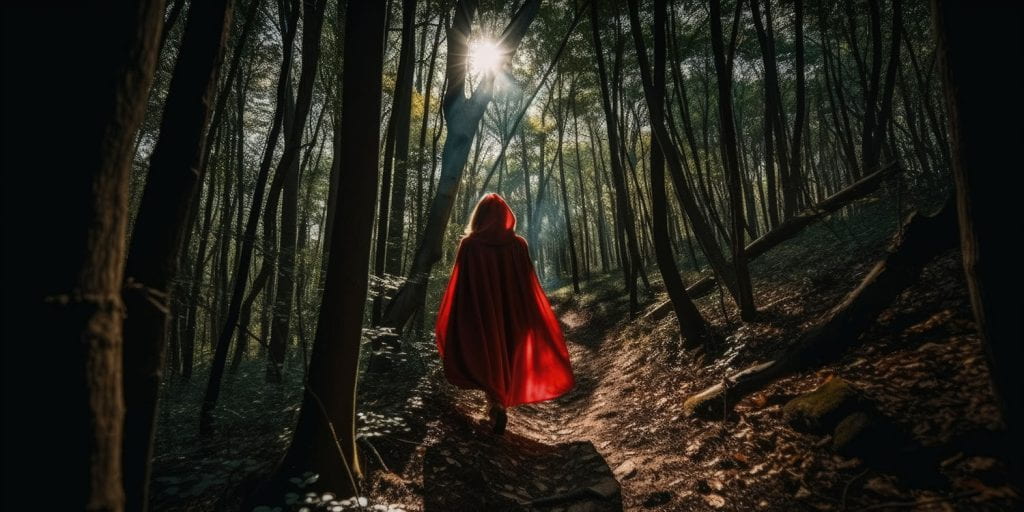
The Digital Solutions Studio helped create Stories That Win, a digital tool WashU researchers are using to collect and analyze fairytales and origin stories.
There’s no magic wand that can make research projects come to life, but the Digital Solutions Studio (DSS) isn’t far off. Still in its pilot phase, the DSS is essentially WashU’s very own software development agency, providing professional software development services to faculty looking to make their research more accessible to people outside the lab.
“I would argue the DSS is actually better than magic, considering they not only grant your wishes but also provide consultation and vision,” says Betsy Sinclair, co-director of the Incubator for Transdisciplinary Futures.
Sinclair and her co-lead researcher, William Acree, worked with the DSS earlier this year to build a digital tool that would allow them to collect and analyze data in a much broader and more efficient manner. Their request resulted in Stories That Win
Using Science to Analyze Political Origin Stories
A longtime fan of fairytales, Sinclair’s research began in 2022 after she noticed a pattern in the origin stories of political candidates. Not only were the stories they published to introduce themselves to voters nearly identical to one another, it seemed as though they all followed the same pattern as fairytales.
To study her theory, Sinclair leveraged a computer algorithm to analyze the origin stories of more than 1,500 congressional candidates (97% of all candidates who ran in 2018) using the “About Me” section of their webpages.
That’s really the compelling value of the Digital Solutions Studio — they focus on user interface and user experience. They let you build things that you could not do as an academic.
Betsy Sinclair, co-director, Incubator for Transdisciplinary Futures
“On the whole, political candidates’ origin stories are very formulaic,” Sinclair says. “[The candidates] always come from humble beginnings, and then they leave home to do great things. Later, they come back as a champion of the people to slay dragons, whether big government, big business, or opposing candidates.”
In addition to this formula, Sinclair’s algorithm detected notable differences between the origin stories of female candidates and male candidates.
“Women used much more polite language, but their stories followed the same pattern as men’s,” Sinclair says.
Expanding Beyond Politics
Acree, the co-director of the Incubator for Transdisciplinary Futures, was critical to the development of the project. In conversation after conversation, he pushed Sinclair to think more deeply about the possibilities for her research. Would CEOs tell the same kind of origin stories? Would startups? Would athletes? What are the variations in terms of language that are present? Were there stories in narrative medicine that are part of the origin story tradition?
By collaborating with Acree, who is also a professor of Romance Languages and Literature, Sinclair’s research deepened and broadened, encompassing a more sophisticated and nuanced understanding of origin stories. The research also produced data about analytical thinking, confidence, and authenticity. Sinclair and Acree felt the research would appeal to a broad array of scholars but didn’t know how to share it with people in an easily accessible, impactful way.
Taking It to the Next Level
In 2023, the origin stories project was identified as one that would be included in the DSS pilot program. Sinclair and Acree met with Albert M. Lai, PhD, deputy faculty lead for Digital Transformation, to discuss what a digital solution could do for them. What they requested was a simple website that would serve as a repository for the stories they collected with a search function. But Lai had bigger ideas.
“Albert is the one who had the vision to say, ‘Where else could this go? What other audiences could we reach? Can we allow people to enter stories in languages other than English? Can we add flexible search?’” Sinclair says. “And that’s really the compelling value of the Digital Solutions Studio — they focus on user interface and user experience. They let you build things that you could not do as an academic.”
What’s Next for Stories That Win
With the website and app nearing completion, Sinclair and Acree have plans to expand their research by sending ambassadors out to collect more stories to add to their database. They are even co-teaching a class on their findings in spring 2024.
Down the road, Sinclair says she and Acree plan to showcase the website in their impact statements in grant proposals. She thinks that will help differentiate their project from others, which Sinclair hopes will result in greater funding. They have already won their first grant: a $60,000 gift from the Frick Family Foundation.“Very few project proposals include plans on how the researchers will meaningfully engage with the communities they’re studying,” Sinclair says. “They may say they will give talks about their research, but how accessible are standard errors and data models to the public? If you can do something that’s visually appealing, that’s accessible on a webpage or a mobile phone, you can achieve a really different kind of outreach. That’s what [the DSS] provides, and it’s really a unique and invaluable WashU program.”
Need Help with a Project?
The experts at the Digital Solutions Studio can help bring your research to life. Contact us to learn about joining the post-pilot phase project queue.